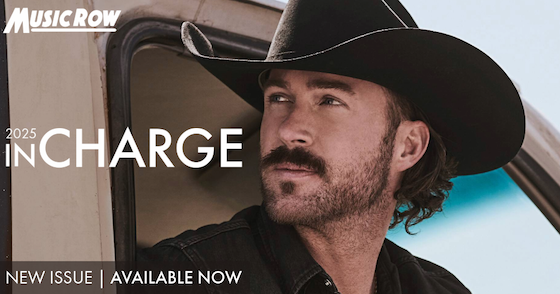Music News (9/9/15)
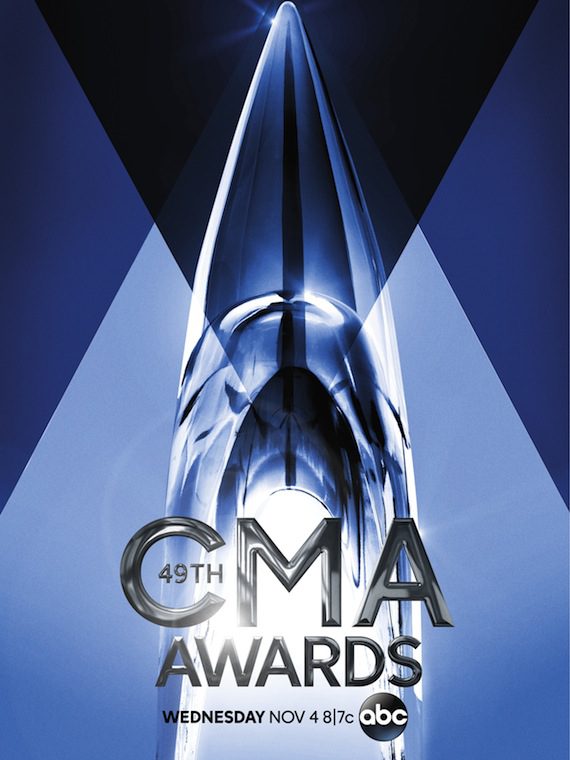
The final nominees for The 49th Annual CMA Awards were revealed this morning (Sept. 9) in New York City. Hosted for the eighth time by Brad Paisley and Carrie Underwood, The 49th Annual CMA Awards three hour broadcast airs live Wednesday, Nov. 4 (8:00-11:00 p.m. ET) from the Bridgestone Arena in Nashville on ABC. The final round of voting from eligible voting members of the CMA will run from Thursday, Oct. 8- Tuesday, Oct. 27 (6:00 PM/CT).
Song-Focused CMA Award Nominees
Single of the Year
(Award goes to Artist and Producer(s))
“American Kids”
Kenny Chesney
Produced by Buddy Cannon and Kenny Chesney
Blue Chair Records/Columbia Nashville
“Girl Crush”
Little Big Town
Produced by Jay Joyce
Capitol Records Nashville
“I Don’t Dance”
Lee Brice
Produced by Lee Brice
Curb Records
“Take Your Time”
Sam Hunt
Produced Zach Crowell and Shane McAnally
MCA Nashville
“Talladega”
Eric Church
Produced by Jay Joyce and Arturo Buenahora, Jr.
EMI Records Nashville
Song of the Year
(Award goes to Songwriter(s))
“American Kids”
Rodney Clawson, Luke Laird, and Shane McAnally
“Girl Crush”
Liz Rose, Lori McKenna, and Hillary Lindsey
“Like a Cowboy”
Randy Houser and Brice Long
“Like a Wrecking Ball”
Eric Church and Casey Beathard
“Take Your Time”
Sam Hunt, Shane McAnally, and Josh Osborne
See a full list here.
•••

Jeff Bhasker
Santa Monica’s Universal Music Publishing Group (UMPG) has signed an exclusive, worldwide music publishing agreement with Grammy-winning producer/songwriter Jeff Bhasker, according to Jody Gerson, Chairman and CEO, UMPG.
Bhasker has co-written and produced some of the highest-selling and most-performed songs in recent years, including the global smash “Uptown Funk” by Mark Ronson feat. Bruno Mars. Under his label KRAVENWORKS, he co-wrote and produced country artist Cam‘s single “Burning House.”
•••
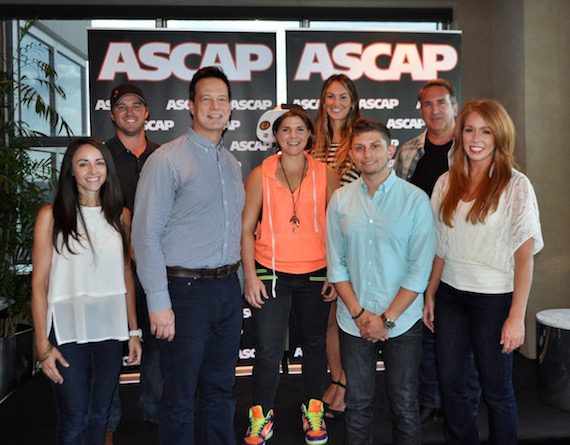
Pictured (L-R, front row): Whizbang’s Jennifer Wolczyk and Jim Scherer, Daphne Willis, and Sony/ATV’s Mark Abramowitz and Hannah Williams; (L-R, back row) Sony/ATV’s Ed Williams, ASCAP’s Evyn Mustoe and Leavens, Strand & Glover, LLC’s Hillel Frankel.
ASCAP songwriter Daphne Willis has signed a co-publishing agreement with Sony/ATV Music Publishing and Nashville-based Whizbang, Inc.
Born in San Antonio to a classically trained vocalist and audio engineer, Willis began performing at open mic nights around Chicago while a student at DePaul University. She eventually started a band and began playing around 200 shows a year across the United States. She released her first full-length album, What To Say, in 2010 and her second album, Because I Can, in 2011. She currently resides in Nashville.
•••
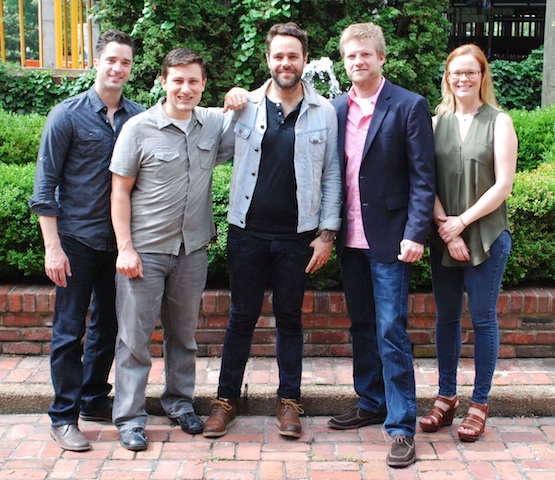
Pictured (L-R): Kevin Lane (BMG, Creative Director); Daniel Lee (BMG, Senior Creative Director); Joe Ginsberg; Kos Weaver (BMG, Executive Vice President); Sara Knabe (BMG, Senior Creative Director).
Joe Ginsberg has signed a worldwide publishing agreement with BMG through the company’s Nashville office. Ginsberg co-wrote Miranda Lambert’s recent hit single “Little Red Wagon” and has also had success as a member of the Reprise Records recording group Single File.
Though based in Los Angeles, Ginsberg has been traveling regularly to Nashville this year building a strong network of local collaborators while he continues to write for and secure activity in multiple formats.
•••
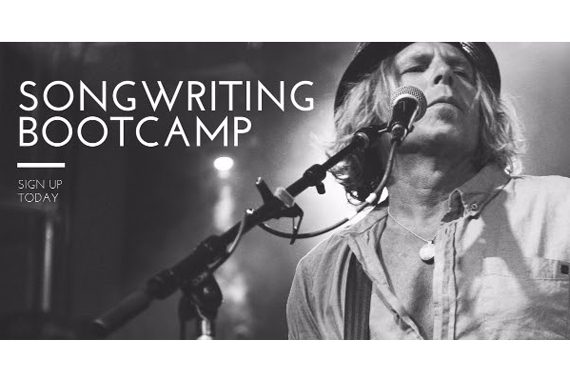
Jeffrey Steele’s Songwriting Bootcamp 2.0.
Nashville Songwriting Hall of Famer Jeffrey Steele has opened registration for his online Songwriting Bootcamp 2.0 course that is slated to begin this fall.
The brand new curriculum incorporates three decades of industry experience in an eight-week intensive online course for songwriters and artists at all levels.
There are a limited number of spots available. Visit JeffreySteeleBootcamp.com for more information.
•••
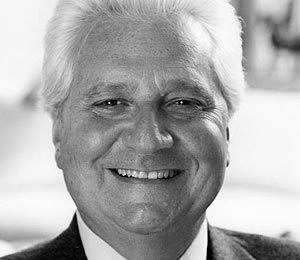
Martin Bandier
For the first time, Sony/ATV Music Publishing Chairman and CEO Martin Bandier is publicly discussing the Department of Justice’s ongoing review of the ASCAP and BMI consent decrees.
He sent this letter to Sony/ATV’s Nashville songwriters to emphasize the importance of the National Music Publishers Association (NMPA) Town Hall meeting being held in Nashville today (Sept. 9). The event is to inform and update songwriters about issues currently being considered in Washington.
To our Nashville-based songwriters:
As you know we are in the midst of a complex and lengthy process to address the issue of the below market royalty rates that our songwriters are subject to in the rapidly growing streaming music market. I am personally spending a great deal of my time dealing with this matter and Sony/ATV has been and remains at the forefront of efforts to ensure that you are fairly compensated for your essential contributions to streaming services.
I am sure you will agree that there is nothing more important right now for songwriters than addressing this issue. That is why I am urging you to attend a Songwriter Town Hall meeting that the National Music Publishers Association (NMPA) is holding in Nashville on Sept. 9. The purpose of the meeting is to update you on changes that are currently being considered in Washington that if implemented will have a profound impact on long standing licensing practices and the royalties you earn from your songs.
As I have communicated to you previously, the Department of Justice (“DOJ”) has undertaken a review of the consent decrees that govern how ASCAP and BMI operate and how the royalty rates you are subject to are set. We have been deeply involved in the DOJ process for over a year, pursuing changes to these consent decrees which are more than 70 years old and were not designed for a music market that is becoming increasingly dominated by streaming services. While we remain hopeful for a positive outcome to the DOJ review, this process has taken an unexpected turn in recent weeks that, if not addressed, could have a significant impact on your earnings as well as restrict how you work creatively.
The DOJ is considering requiring ASCAP and BMI to engage in what is called 100% licensing. This is a complicated subject but it basically means that if either of these PROs controls any part of a song, no matter how small, they would be required to license the entire song without the approval of those who control the remainder. For example, you may have written a song with a writer affiliated with a different PRO. Under 100% licensing, a streaming service could bypass you and your PRO and go to your collaborator’s PRO to obtain a license for the entire song without your consent. You would then be subject to that PRO’s royalty rate, even if it is lower than your PRO’s rate, and you may have to depend on the other PRO, with which you have no relationship, to collect your share of royalties and account to you. This would substantially disrupt the well-established practice of licensees entering into agreements with each PRO representing whatever piece of a song they control and create significant accounting inefficiencies as PROs would have to pay royalties to songwriters not affiliated with them.
Under this scenario, songwriters might reconsider who they write with. Would you want to collaborate with someone signed to a different PRO if it meant you would be subject to a lower royalty rate? In addition, how would a writer whose song is licensed by a PRO that he or she is not affiliated with have any assurance that their royalties would be properly paid or paid at all?
These potential changes go to the heart of how performance rights have historically been licensed and how songwriters have always been paid. Requiring PROs to grant 100% licenses would be an unprecedented change to well-established licensing practices create widespread administrative confusion and potentially undermine a songwriter’s relationship with his or her chosen PRO.
This is why I am urging you to attend the NMPA event where I am sure you will gain a greater understanding of these complicated issues and learn how you can potentially help.
If you would like to discuss this issue further or have any questions following the meeting please don’t hesitate to contact us. I look forward to seeing you there.
Regards,
Martin Bandier
Chairman & CEO
Sony/ATV Music Publishing
Category: Music News



